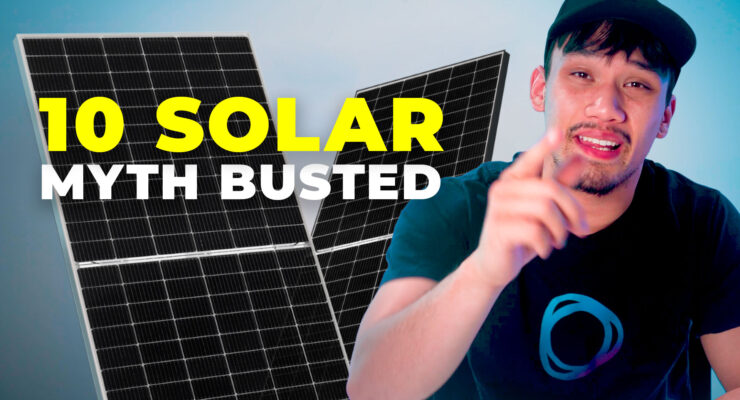Fast read
Yes, installing a solar battery system is increasingly likely to boost the resale value of your Australian home. With rising electricity costs, buyers are willing to pay a premium for properties with energy-saving features, and homes with batteries offer the added security of blackout protection and greater energy independence. While the exact value-add depends on factors like system quality and buyer awareness, recent data shows energy-efficient homes command significantly higher prices and sell faster.
Will battery installation increase or affect the resale value of my home?
As Australian homeowners become more conscious of rising energy prices and environmental sustainability, the question of how home improvements affect property value is more relevant than ever. Investing in a solar battery system is a significant financial decision, and it’s natural to wonder if you’ll see a return on that investment when it comes time to sell.
The short answer is that a quality solar and battery installation is increasingly being viewed as a valuable asset by homebuyers, capable of increasing both the price and appeal of your property.
The growing demand for energy-efficient homes
Recent data paints a very clear picture: Australian homebuyers want energy-efficient properties and are willing to pay more for them. The 2025 Domain Sustainability in Property Report indicates that energy-efficient houses in combined capital cities sell for a premium, with a median price difference of $118,000. Energy-efficient units also command a significant premium of about $75,000. In regional Australia, the premium for houses can be even more pronounced. This trend is driven by a desire to lower household running costs and is becoming a “must-have” for many buyers, rather than just a “nice-to-have”.
Solar panels are the most common energy-saving feature mentioned in property listings, and adding a battery takes the benefit a significant step further. While panels generate power during the day, a battery allows a household to store that free energy for use at night or during peak-cost periods, drastically reducing reliance on the grid. This appeals directly to a buyer’s desire for lower bills and energy security.
How exactly does a battery add value?
A solar battery enhances a property’s value in several tangible ways, making it more attractive to prospective buyers.
- Lower running costs: The most immediate benefit is the significant reduction in electricity bills. By storing your own solar power, you minimise the amount of expensive energy you need to buy from the grid, a powerful selling point in an era of rising power prices.
- Energy independence and blackout protection: A battery offers peace of mind. Systems with backup capability can keep essential appliances running during a grid outage, a feature that is highly valued by buyers. The term “Energy independence” refers to the ability to rely less on the grid, while blackout protection is the specific feature of providing power during an outage.
- Future-proofing the home: A home with a battery is seen as modern and prepared for the future. With more Australians considering electric vehicles, a battery system provides the foundation for cheap, solar-powered EV charging.
- Environmental appeal: For a growing segment of buyers, a home’s carbon footprint is a key consideration. A battery system demonstrates a commitment to sustainability by maximising the use of clean, renewable energy.
What determines the return on your investment?
Not all battery systems will add the same value to your home. Several key factors will influence how much of a premium your installation can command:
- System ownership: To realise the value, you must own the system outright. Leased systems can complicate a sale, as the new owner has to agree to take over the lease, which can be a deterrent for some buyers.
- Quality and age of components: A system with high-quality, reputable components and a long warranty will be far more attractive than an older, unbranded system. For example, mentioning a high-efficiency solar panel array paired with a robust hybrid inverter and battery from a CEC-approved product list gives a buyer confidence in the system’s performance and longevity.
- System size and condition: The battery’s capacity and the overall system’s condition are crucial. Buyers will want to know the age of the system and see that it has been well-maintained.
- Documentation: Providing all the correct paperwork is essential. This includes warranties for the panels, inverter, and battery, along with a Certificate of Compliance (or equivalent electrical safety certificate for your state/territory). It’s also vital to prove the system was installed by an accredited professional. The accreditation framework changed in 2024; while prior installations were accredited by the Clean Energy Council (CEC), new installations must be handled by a professional accredited by Solar Accreditation Australia (SAA) to be eligible for government incentives like Small-scale Technology Certificates (STCs). Having records of past energy bills to demonstrate the savings can also be a powerful tool.
Maximising the value of your system when you sell
To ensure potential buyers see the full value of your battery installation, it’s important to market it effectively.
Many real estate agents may not be fully aware of the benefits of solar and battery storage. Take the time to educate your agent on the system’s features and the cost savings it provides. Ensure they highlight these benefits in the property listing and during inspections.
Be prepared to answer buyer questions about maintenance, which is typically minimal, and show them how easy it is to monitor the system’s performance. By clearly demonstrating the financial and lifestyle advantages, you position your home as a smarter, more resilient, and more valuable investment.
A wise investment for today and tomorrow
Installing a solar battery is not just about immediate savings on your electricity bills; it’s an investment in your property’s future appeal and value. As energy costs continue to rise and government incentives make installation more affordable, homes equipped with battery storage will only become more desirable. The federal Cheaper Home Batteries Program, starting July 1, 2025, will provide an upfront discount of around 30% for eligible households and small businesses on new battery installations.
This program is administered by the Clean Energy Regulator (CER) as an expansion of the Small-scale Renewable Energy Scheme (SRES) and works by allowing the creation of Small-scale Technology Certificates (STCs) for the battery, which are then sold to provide the discount. The Australian Government will fund this by purchasing the additional STCs, ensuring no extra costs are passed on to consumers. By choosing a quality system and effectively communicating its benefits, you can be confident that your investment will pay dividends both while you live in your home and when it comes time to sell.





